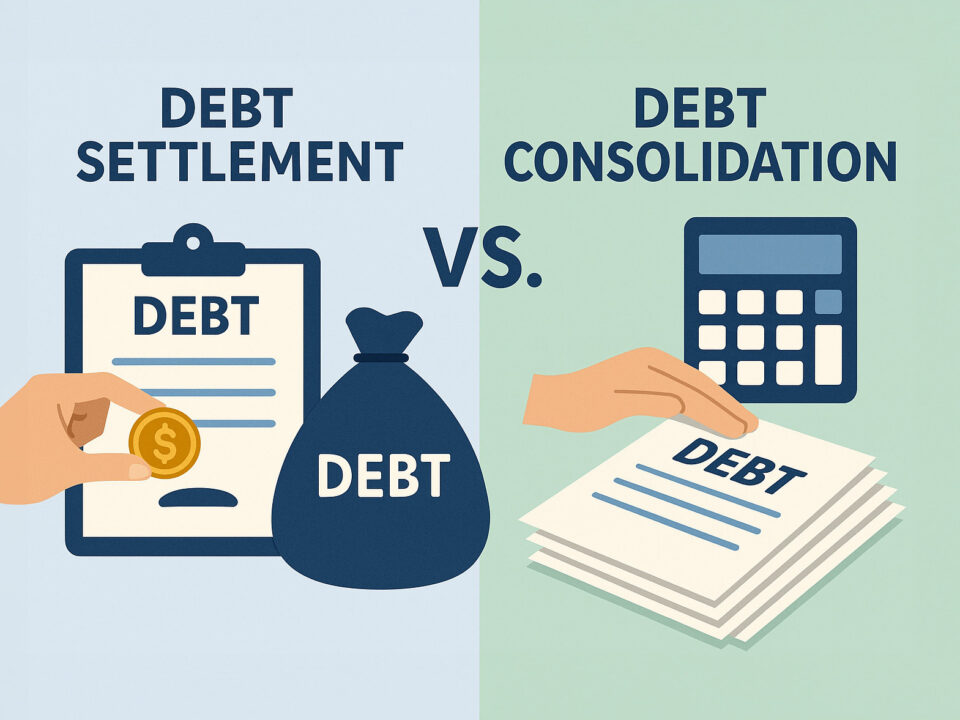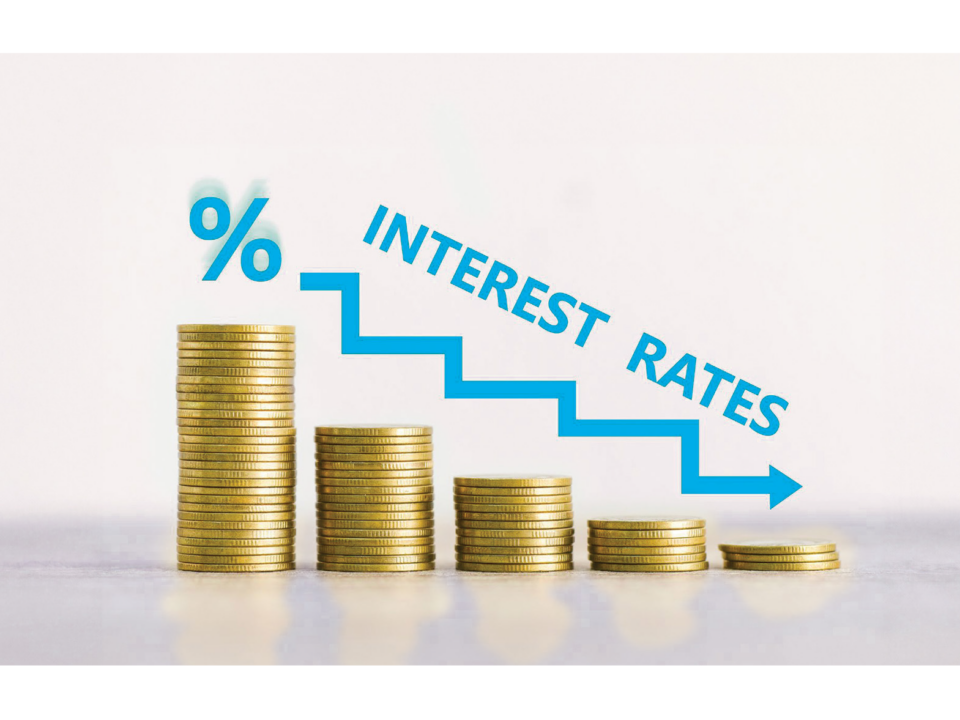
Choosing between consolidation loans and credit counseling for debt management is always tricky. While some people consider loans to be the better option, some consider counseling a better way to approach it.
Both options are effective when it comes to managing debt. While consolidation loans are financial products to solve your problem, credit counseling is more of a service that helps you manage debt.
Now, the real dilemma is how you decide between the two. Well, it’s simple: compare the two and see which one meets your requirements better. That’s why we go through an in-depth comparison of these two debt management methods.
What is Consolidation Loans?
A consolidation loan is a loan that you can use to pay off multiple debts. If you know how to consolidate a debt, then you should know how consolidation loans work.
It’s a straightforward and quick gateway to solving the problem of handling multiple debts with a single payment and a lowered interest rate.
How does it work?
The process of consolidating loans streamlines your financial obligations by transforming multiple debts into a single, more manageable loan. Here’s how to navigate this process effectively:
- Initiate Your Search: Begin by exploring various lenders who offer consolidation loans. This is a critical step as it lays the groundwork for what comes next.
- Evaluate Your Options: Carefully compare the interest rates, repayment terms, and any associated fees each lender offers. This step is crucial for finding the most cost-effective and suitable option for your financial situation.
- Submit Your Application: Once you’ve selected the most favorable lender, proceed by completing and submitting a loan application. This application typically requires information about your financial status and the debts you wish to consolidate.
- Await Approval: After submitting your application, the lender will review it to determine whether you qualify for the loan. This review process may involve checking your credit score, income, and other financial details.
- Loan Disbursement: Upon approval, the lender will disburse the funds of the consolidation loan. This marks the beginning of the consolidation process.
- Debt Repayment: Use the funds you have received to clear your outstanding debts. This step is satisfying as it simplifies your financial obligations, leaving you with just one loan to manage.
- Manage Your New Loan: Finally, you’ll start repaying the consolidation loan through monthly payments, as agreed upon with your lender. These terms should be more favorable, making it easier for you to manage your finances.
By consolidating your debts, you streamline your monthly payments and potentially benefit from lower interest rates and a simplified financial management process. It’s a strategic approach to debt management that can lead to significant savings and a clearer path to financial freedom.
Pros and Cons of Debt Consolidation Loans
To make an informed decision about debt consolidation loans, it’s essential to weigh their advantages and disadvantages comprehensively. Below is an enhanced overview to assist you in determining if this financial strategy aligns with your needs:

Benefits of Debt Consolidation Loans
- Streamlines Payment Schedules: Consolidation simplifies your financial management by combining multiple debts into a single payment, making it easier to keep track of your obligations.
- Potentially Lower Interest Rates: By consolidating, you might secure a lower average interest rate across your debts, leading to significant savings over time.
- Reduces Repayment Duration: With a lower interest rate and a structured repayment plan, you can pay off your consolidated debt faster than managing multiple accounts separately.
- Eases Financial Management: By having just one monthly payment, you can better manage your budget and financial planning, reducing stress and increasing your control over personal finances.
Drawbacks of Debt Consolidation Loans
- Requires a Good Credit Score: Qualifying for a consolidation loan with favorable terms often demands a high credit score, which can be a barrier for some borrowers.
- Increase Total Interest Paid: If you extend the loan term to lower monthly payments, you might pay more in interest over the loan life compared to the original debts.
- Risk of Further Debt: The initial relief of consolidating debts can sometimes lead to complacency, potentially encouraging the accumulation of new debts if spending habits are not adjusted.
- Possible fees: Some consolidation loans come with additional costs, such as origination fees, which could reduce the financial benefits of consolidating.
Understanding these pros and cons is crucial for anyone considering debt consolidation. This method can offer a path to streamlined debt management and financial relief but requires careful consideration of your financial habits, goals, and the specifics of the consolidation loan terms. Assessing the immediate and long-term implications on your financial health will help ensure that this strategy genuinely benefits your situation.
What is Credit Counseling?
Credit counseling is a professional service designed to help individuals navigate the complexities of debt management without needing to handle every aspect of their debts directly. By consulting with a qualified credit counselor, you can access expert advice and structured plans tailored to manage your debt more efficiently and effectively.
This service is particularly beneficial for those feeling overwhelmed by their financial obligations. A skilled credit counselor works with you to assess your financial situation comprehensively, identifying the most viable strategies to address your debts. This may include negotiating with creditors to lower interest rates, waive fees, or establish more manageable repayment plans.
Credit counseling agencies offer various services, from budgeting assistance to debt management plans (DMPs), aimed at consolidating your monthly debt payments into a single, more manageable amount. This approach simplifies the payment process and potentially reduces the overall interest and fees associated with your debts.
How Credit Counseling Works
- Find a Qualified Credit Counselor: Start by seeking a reputable credit counselor. Organizations accredited by the National Foundation for Credit Counseling (NFCC) or approved by the U.S. Department of Justice are good starting points. These counselors have the credentials and experience to offer sound advice and practical debt management plans.
- Initial Consultation and Debt Assessment: During your first meeting, the counselor will review your financial situation. This involves discussing your debts, income, expenses, and any loan terms you’re currently under. Full transparency here is crucial for developing an effective plan.
- Financial Analysis: The counselor will analyze the information provided to understand where your finances stand and identify areas for improvement. This step is about getting a clear picture of your financial health and the root causes of your debt.
- Budget Planning: The counselor will help you create a realistic budget based on your financial analysis. This budget aims to manage your expenses better while allocating funds towards reducing your debt.
- Negotiation with Creditors: One of the key benefits of credit counseling is the counselor’s ability to negotiate with your creditors on your behalf. They may work to secure lower interest rates or more favorable repayment terms, making managing your debt more manageable.
- Financial Education: Besides negotiating and budget planning, a significant part of credit counseling is educating you on sound financial practices. This guidance aims to help you avoid similar debt issues in the future by making informed financial decisions.
- Your Role: While the credit counselor will handle most of the heavy lifting, your role is crucial. You’ll make critical contributions to finding a trustworthy counselor, providing accurate financial information, and committing to the plan they create.
In essence, credit counseling offers a guided pathway out of debt, with the counselor serving as a negotiator and financial advisor. This approach aims to alleviate your current debt. It equips you with the knowledge and habits necessary to maintain a healthier financial future.
Benefits and Drawbacks of Credit Counseling
Deciding whether credit counseling services meet your needs involves weighing their advantages against their disadvantages. Here’s a refined comparison to help determine if the benefits outweigh the drawbacks for your specific situation.
Benefits of Credit Counseling
- Expert Guidance: Receive professional advice to sidestep common financial mistakes, ensuring a more innovative approach to handling your finances.
- Reduced Interest Rates: Benefit from negotiated lower interest rates on your current debts, potentially saving you significant money over time.
- Improved Financial Management Skills: Learn valuable strategies to manage your future finances better, setting a foundation for financial stability.
- Minimal Effort Required: The credit counseling agency handles negotiations and plan development, requiring little of your time and effort.
- No Direct Impact on Credit Score: Engaging in credit counseling services does not directly affect your credit score, preserving your creditworthiness.
Drawbacks of Credit Counseling
- Service Fees: Accessing credit counseling services usually comes with additional fees, which could add to your financial burden.
- Extended Repayment Periods: It might take longer to pay off your debts through a counseling program due to structured repayment plans.
- Limited Credit Card Use: Credit cards may be off-limits or usage severely restricted during the counseling period, which can be inconvenient.
- Time Commitment: Despite minimal effort for negotiation and plan development, engaging in counseling sessions and adhering to a budget requires time commitment.
Understanding the benefits and drawbacks of credit counseling can help you decide whether this path aligns with your financial recovery and management goals. If the prospect of professional guidance and improved financial management outweigh the potential downsides, credit counseling could be a viable option for regaining control over your finances.
Get Free Financial Consultation
Comparison Between Consolidation Loans vs Credit Counseling
Let’s compare debt consolidation loans and credit counseling across several key aspects to help you decide which method might be more suitable for your financial situation.
Functionality and Nature
- Consolidation Loans are financial products that allow you to combine multiple debts into a single loan with a potentially lower interest rate. This approach requires you to actively manage and repay this new loan independently.
- Credit Counseling is a service that offers professional guidance on managing your debts. A counselor works on your behalf to devise a repayment plan, negotiate with creditors, and provide financial education, reducing your direct involvement in debt management.
Eligibility Criteria
- Consolidation Loans require an excellent credit score and a stable income to demonstrate your ability to repay the new loan. Lenders assess your financial stability before approving your application.
- Credit Counseling is accessible regardless of your credit score. There are no strict prerequisites, making it an option for a broader range of individuals struggling with debt.
Cost
- Consolidation Loans may involve origination fees and, if your credit score is lower, higher interest rates, which increase the total cost over time.
- Credit Counseling services can range from free to fee-based, depending on the agency. Nonprofit organizations often offer low-cost counseling, but there may still be an upfront or monthly fee.
Effects on Debt Management
- Consolidation Loans streamline your debt repayment by consolidating multiple debts into a single payment, which can simplify your finances but requires discipline to avoid accruing new debt.
- Credit Counseling offers a more holistic approach to debt management, including budgeting advice, creditor negotiation, and financial education. The counselor plays a significant role in managing your debt strategy.
Required Time
- Consolidation Loans typically offer a quicker path to debt management since you directly replace multiple debts with one loan, focusing solely on its repayment.
- Credit Counseling involves a longer-term commitment to pay off existing debts and learn and implement effective financial management strategies, potentially taking more time to become debt-free.
Impact on Credit Score
- Consolidation Loans might initially lower your credit score due to the hard inquiry from applying for a new loan. Still, consistent repayment can improve your score over time.
- Credit Counseling itself does not negatively impact your credit score. Successful negotiation for lower interest rates and adhering to a managed payment plan can positively influence your credit over time.
By understanding these distinctions between consolidation loans and credit counseling, you can better assess which option aligns with your financial goals, capabilities, and preferences, facilitating a more informed decision toward achieving debt relief.
FAQ on Consolidation Loans vs. Credit Counseling
Is credit counseling worth considering?
Credit counseling could be a valuable resource if you’re unsure about managing your debts or overwhelmed by financial obligations. It offers professional guidance and strategies to effectively handle debt.
Will obtaining a consolidation loan impact my credit score?
Initially, a consolidation loan may negatively affect your credit score due to the lender’s hard inquiry. However, responsible management and timely repayments of the consolidation loan can enhance your credit score over time.
Is it feasible to utilize both credit counseling and a consolidation loan?
Typically, choosing either credit counseling or a consolidation loan is advisable because credit counseling involves negotiating lower interest rates with creditors, which might conflict with the terms of an existing consolidation loan. Nonetheless, combining both strategies is not impossible, and consulting a financial advisor could help determine the best approach for your situation.
What is the usual duration of credit counseling?
The duration of credit counseling varies based on the agency you work with and your specific debt circumstances. It can range from a few months to five or six years. A more considerable debt load or less effective counseling may extend the process, whereas efficient management could resolve your debt in a shorter timeframe.
What are the potential risks associated with consolidation loans?
The primary risks include extending the repayment term, which could increase the total interest paid, potentially negating the financial benefits of consolidation. Additionally, there’s a risk of accruing new debt if you don’t adhere to disciplined spending, further exacerbating financial strain.
In conclusion, there are enough differences between consolidation loans and credit counseling to give you a direction. But if you still struggle to understand how you should go, we have got you covered.
Get free consultation from us to get a clear idea of which method you should use for your debt management. We will evaluate your situation and give you the perfect solution that will bring you the most effective results.



